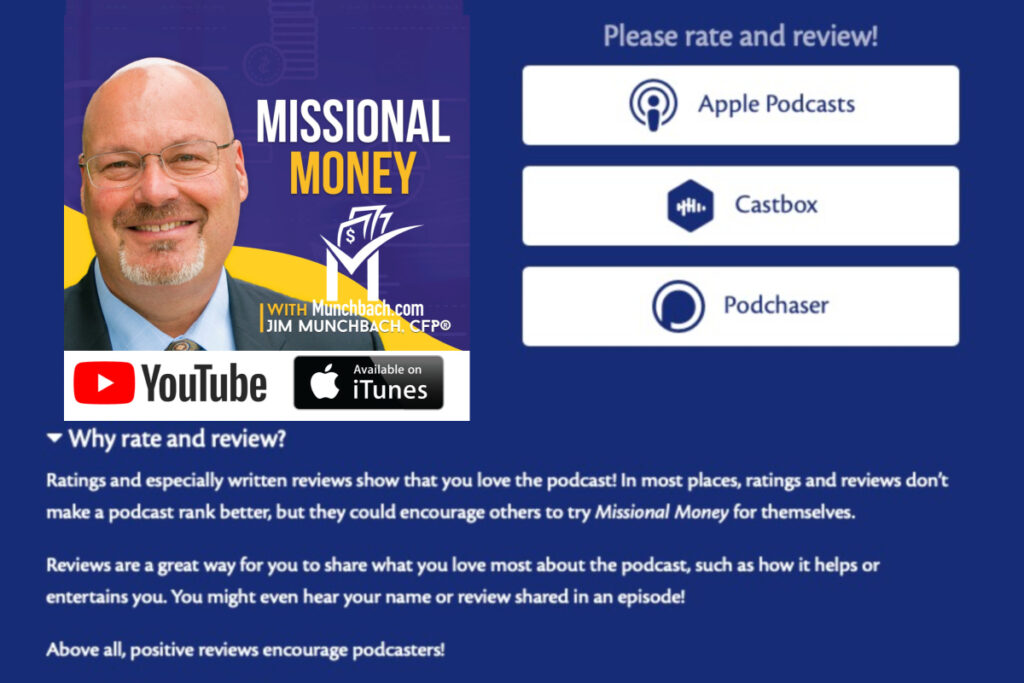Personal Finance Zoom Meeting Week 2 Budget
Part One:
Student Comments from Week 1
YouTube Comments
Lance Fontenot
I have been managing my finances well and I feel confident in my money managing skills currently, but I do worry about how that will change once I take on more expenses. I always feel like I could be saving more, and I anticipate that saving will only be more difficult in the next couple of years. I hope to gain skills in managing my expenses to be able to optimize my savings for the future.
Hela Ali
I feel anxious thinking about financial freedom and how to manage my finances right now and after graduating college. I took this class because I know there is so much more to saving money. I’m excited to learn about all these different ways I can grow my income and feel confident spending money.
Averie Beaty
The thought of having to manage my money seems overwhelming but I honestly believe that once I get the hang of it, it won’t be as difficult of a task to manage. I think that people get overwhelmed when they feel as if they have no direction or guidance, but after completing educational courses such as this one, I think it’ll give more people peace of mind. The challenge I anticipate being faced with is the discipline that comes with having to save my money and keeping myself within a budget because it is not something that comes easy for me, but it will definitely be rewarding to see the benefits of me doing so.
Jazmin Miralda
I’ve improved my spending habits significantly, but I always worry if I’ve saved enough money for the future. I’m looking forward to learning how to better save and what channels I can use to invest my money into.
sophie robertson
Hello Professor! Managing money as an adult can weigh very heavy mentally on the head but it is important to make good choices when it comes to financials and if you are smart 90% of the time, everything will be okay! Currently my troubles of saving just come from mindless spending on dinners and nights out, which add up pretty fast. In order to accomplish my goals I need to start budgeting myself and cut down on the mindless spending and start investing in my future.
Part Two: 3 Laws of Personal Finance
The Big Idea
Every college graduate can become a millionaire by age 50 by obeying 3 laws of personal finance.
The 3 laws of personal finance are:
-
Personal Finance Law #1
-
Personal Finance Law #2
-
Personal Finance Law #3
Some people think this is a very bold claim; every college graduate can be a millionaire by age 50.
When you obey these 3 laws of personal finance, you discover the truth. Saving a million dollars in 30 years is really not mission impossible.
The first law of Personal Finance is the law of Spending and Saving:
The law of spending and saving, is the most fundamental principle and personal finance. It’s also the most disregarded law of personal finance in American history. Spend less than you earn, and save more for what matters most.
Ben and Frank became friends at age 19. Ben started saving and investing, in a well-managed, low-fee, diverse mutual fund that earned an average return of twelve percent annually. Ben saved two thousand dollars a year for eight years and then he stopped. So he invested sixteen thousand dollars; 8 years times x 2 equals sixteen thousand dollars. By the time Ben was 65, his investment grew to $2,288,996.00.
Frank, on the other hand, decided he wanted to spend his money on entertainment, dining out, Starbucks and a nice new BMW. Frank didn’t start saving until nine years later. So by the time Ben stopped investing, Frank was just getting started.
Frank, like Ben, saved two thousand dollars a year. That’s a 167 dollars a month, or forty two dollars a week. Frank invested his two thousand dollars every year in the same mutual fund as Ben. Frank continued his spending and saving plan until he turned 65; at that point he had a total of only $1,532,166.
Ben, saved and invested to thousand dollars for eight years from age 19 to 26. Ben, saved and invested a total of $16000. Frank started his spending and saving plan at age 27 and kept doing it, until he was aged 65. Frank saved and invested seventy eight thousand dollars and he never caught up to Ben.
The law spending and saving, is the most fundamental law of personal finance; spend less than you earn, and save more for what matters most.
The Law of Tax Advantaged Investing:
The law of tax advantaged investing is next. The IRS makes the law – your job is to take advantage of the law, by investing in tax advantaged accounts…
-
like your 401K, the most common,
-
simple IRA for small business
-
SEP IRA- best for sole proprietors or employers with no employees;
-
Tax deductible IRAs
-
403B for teachers and nonprofits;
-
457 for government workers and
-
Tax-free investments,
Like the Roth IRA — for you your spouse or your kids who earn money in your cottage industry.
The law of tax advantaged investing, lets you spend less on taxes and save more for what matters most to you.
The Law of Purpose and Commitment:
The most important law of personal finance is the law of purpose and commitment.
When it comes to managing money, life, work and relationships, and did I say MONEY? There’s no law more important than the law of purpose and commitment.
Most Americans, don’t spend time thinking about their true purpose; so most Americans never connect their resources to what matters most.
Every college graduate can be a millionaire by age 50.
Part Three Week 2 Assignment: Budget
Week 2 Assignment Accounting and Accountability
This week it’s all about the Budgets. Below is one of my favorite sources of financial information. Where do you go for good information about Personal Finance?
Whether you’re an accounting major or an education major, you need to learn about Budgets. So, do a little research, create your simple budget, and tell me all about what you learned in this assignment. That’s your assignment in a nutshell.
How to make a budget in 5 steps by NerdWallet
*Note, the links in this assignment may not open in BB. For your convenience, this assignment – along with the instructional video – has been posted to your online course at MoneyStudyGroup.com. Please watch the video before completing the assignment in BB.
-
Figure out your after-tax income. If you get a regular paycheck, the amount you receive is probably it, but if you have automatic deductions for a 401(k), savings, and health and life insurance, add those back in to give yourself a true picture of your savings and expenditures. If you have other types of income perhaps you make money from side gigs subtract anything that reduces it, such as taxes and business expenses.
-
Choose a budgeting plan. Any budget must cover all of your needs, some of your wants and this is key savings for emergencies and the future. Budgeting plan examples include the envelope system and the zero-based budget.
-
Track your progress. Record your spending or use online budgeting and savings tools.
-
Automate your savings. Automate as much as possible so the money you’ve allocated for a specific purpose gets there with minimal effort on your part. An accountability partner or online support group can help, so that you’re held accountable for choices that blow the budget.
-
Revisit your budget as needed. Your income, expenses and priorities will change over time. Adjust your budget accordingly, but always have one.
Part One: Video Article
Visit our YouTube Channel and locate the Playlist Titled: Money Study Group Budgeting with Charles Schwab.
Here’s a link to the Playlist:
Review the 12 videos in this playlist and select at least 3 of your favorite videos for this week’s article.
Remember to use the same approach as in your first assignment in creating this week’s article:
-
Watch the all of the videos listed
-
Write your article between 800 — 1000 words
-
Include the following elements…
Introduction that tells me some of your story and why this information matters to you and how you will use what you learned this week to move forward on your goals.
-
For each video, provide a short summary of the content including any principles or concepts that were especially helpful in each video.
-
Organize your article as if it were a report.
-
Apply some simple formatting so that your article is easy to read and professional in appearance.
Here are a few simple formatting suggestions that will make it easy for you to receive all of the points available in your assignment:
Give your article a Title (be a little creative if you like)
-
Use bullets or numbering when making a list
Bold font,
italics, and
highlighting words
or sentences
Part Two Capstone Next Steps
By now, you should have completed the following steps:
-
Register as a User at MoneyStudyGroup.com
-
Enroll in the Online Personal Finance Course
-
Open Your Online Planning Portal at BayRock
-
Download the Mobile App (optional)
Week 2 Capstone
Get Started with Your Plan by Completing 6 Data Cards
-
Family Profile
-
Income (remember to do a little research to come up with a good estimate of your FUTURE income, assuming you’re out of college and working in your chosen vocation.
-
Savings
-
Net Worth – Link your Accounts, starting with your Credit or Debit card(s)!
-
Expenses – Detailed Worksheet (remember to consider all of the expenses that will be a part of your “Budget” after you graduate and are living on your own.
-
Goals – For the Capstone, you will list all of the goals you want to achieve in the next 25 years, but don’t worry about getting them all listed for this assignment. Just list the goals you know you want to include right now.
Moving forward, we’ll talk about the Capstone Assignment in our Weekly Zoom Meetings every Tuesday at 10 am.
Part Three: Complete Your Detailed Expenses (in your planning portal) and Link Your Card(s) and Accounts! (I’ll show you how to do this in this week’s video tutorial). *YOU WILL BE TRACKING YOUR SPENDING FOR THE NEXT 60 DAYS USING 1. Your Bank’s Mobile App, 2. Mint.com, or 3. Your BayRock Planning Portal.
Do your best, but don’t spend too much time making your budget perfect — you’ll spend more time working on your income and expenses later. For now, just jump into your financial planning portal and link any accounts you like (especially credit cards and/or debit cards. Also, update your income and the detailed expenses as seen in this week’s video tutorial for this assignment.
When I grade this assignment, I’ll be especially interested in seeing your “Income and Expenses” so make sure to grab a screenshot of this section of your plan.
Want Full Credit?
-
You will get full credit for this assignment only IF you provide screenshots from your planning portal.
-
Include a screenshot of this week’s Quiz from MoneyStudyGroup.com
-
Remember to think about your income AFTER graduation, when you’re working in your chosen career.
-
Remember to create your expenses based on you being on your own, not living on campus or with parents!
Submit Only One Document — PDF Only (NO Word Docs)
Include a Screenshot of your Quiz from MoneyStudyGroup.com









